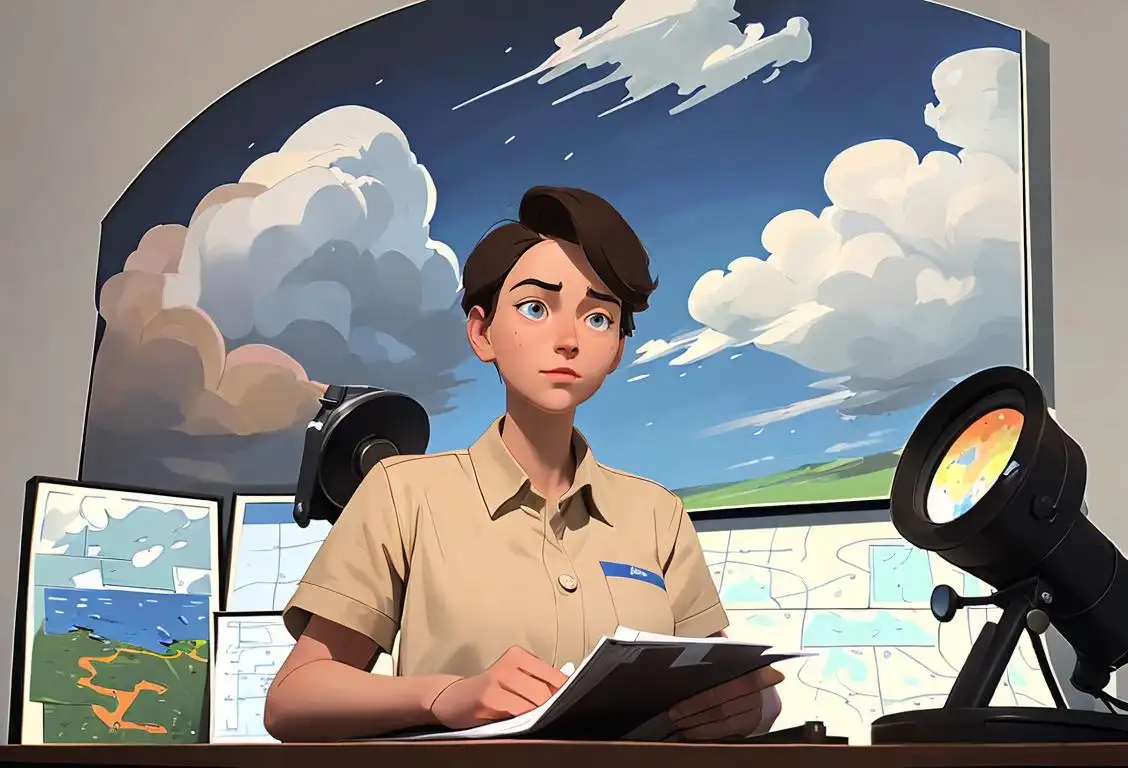National Weather Observer Day

Hey there weather enthusiasts! Get ready to celebrate National Weather Observer Day, a day dedicated to those amazing individuals who keep an eye on the skies and provide us with valuable weather information. Whether they're stationed at a meteorological office or keeping an eye out from their backyard, weather observers play a crucial role in our daily lives.
When is Weather Observer Day?
It's national weather observer day on the 5th May.
A Brief History of National Weather Observer Day
Did you know that National Weather Observer Day has its roots in the early days of meteorology? Back in the 1800s, when weather forecasting technology was still in its infancy, keen weather enthusiasts would observe and record weather conditions as a hobby. These observations provided valuable insights into the weather patterns of the time and helped lay the foundation for modern meteorology.
As technology advanced, weather observation became more sophisticated, with weather stations and trained observers taking on the task. On National Weather Observer Day, we celebrate the dedication and hard work of these individuals who continue to provide us with vital weather data.
How to Celebrate National Weather Observer Day?
Want to show appreciation for weather observers? Here are some fun ways to celebrate National Weather Observer Day:
- Thank a Weather Observer: Take a moment to thank the weather observers in your life, whether they're professionals or weather enthusiasts. Let them know you appreciate their efforts in keeping us informed about the weather.
- Learn about Weather Instruments: Spend some time learning about the different meteorological instruments used in weather observation, such as anemometers, barometers, and rain gauges. It's fascinating stuff!
- Get Outside and Observe: Take a break from the hustle and bustle of daily life and spend some time observing the weather firsthand. Look up at the sky, feel the wind on your face, and try to make your own weather predictions.
Fun Fact about Weather Observation
Did you know that the first weather observations in the United States were taken by Thomas Jefferson, the third President of the United States? He recorded weather observations at his home, Monticello, in Virginia for over 40 years. So, even former presidents had a passion for weather observation!
History behind the term 'Weather Observer'
1800
The Birth of Weather Observers
In the early 19th century, the term 'weather observer' emerged to describe individuals who engaged in systematic weather monitoring. The practice gained popularity as people became increasingly interested in understanding and predicting weather patterns for agricultural and maritime purposes.
1848
The Founding of the Smithsonian Institution
The establishment of the Smithsonian Institution in 1848 played a significant role in the development of weather observation. Under the leadership of Joseph Henry, the first Secretary of the Smithsonian, a network of 'weather observers' was created to gather data across the United States. This marked the first national effort to systematically observe and record weather conditions.
1854
The Creation of the First Weather Bureau
Recognizing the need for a centralized organization focused on weather observations, the United States government created the Weather Bureau in 1870. This new government agency employed weather observers to collect meteorological data, enhance forecasting capabilities, and promote public safety. The term 'weather observer' became synonymous with the dedicated individuals who contributed to the nation's understanding of weather patterns.
1924
The Founding of the International Meteorological Organization
In 1924, the International Meteorological Organization (later renamed the World Meteorological Organization) was established to foster international cooperation in meteorology and climatology. Weather observers from around the world united under this organization, sharing their observations and contributing to global weather forecasting efforts.
Modern Era
Technological Advancements and Citizen Scientists
With the advent of advanced technologies, weather observing has become more efficient and widespread. Automated weather stations, satellites, and radar systems now play a crucial role in collecting meteorological data. Additionally, citizen scientists armed with personal weather stations and smartphone apps contribute valuable observations to enhance weather forecasts and climate studies. Weather observers continue to play an essential part in understanding and predicting our ever-changing atmosphere.
Did you know?
Did you know that the first weather observations in the United States were taken by Thomas Jefferson, the third President of the United States?Tagged
awareness funFirst identified
5th May 2016Most mentioned on
5th May 2016Total mentions
12Other days
Nurses Day
Former Prisoner Of War Recognition Day
Press Day
Handloom Day
Heroes Day
Memorial Day
Dance Day
Bestfriends Day
Liberation Day
Love Your Pet Day









